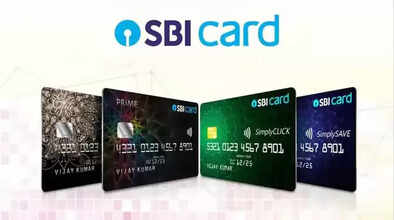SBI Credit Card Users Face New Charges from November 1: Extra Fees on Education and Digital Wallet Payments

Starting November 1, 2025, the State Bank of India (SBI) Card has implemented major changes to its fees and charges structure, impacting millions of customers across India. The revision introduces new charges on school and college fee payments made via third-party platforms, as well as on money added to digital wallets such as Paytm, Amazon Pay, and Mobikwik.
If you’re an SBI credit cardholder, here’s a detailed breakdown of what’s changing and how it may affect your daily transactions.
1% Fee on Education Payments Through Third-Party Apps
SBI Card has introduced a 1% transaction fee on all education-related payments made using third-party apps like Paytm, PhonePe, Razorpay, and similar platforms. This means that from now on, if you pay your school or college fees using these apps with your SBI credit card, you’ll be charged an additional 1% of the total amount.
For instance, if your tuition fee is ₹50,000, you’ll have to pay ₹500 extra as a service fee.
However, there’s a way to avoid this charge. Payments made directly through the school or college’s official website or POS machine will not attract any additional fee. Therefore, SBI customers are advised to carefully choose their payment platform to avoid unnecessary costs.
Extra Charges on Adding Money to Digital Wallets
In addition to education payments, SBI Card has also announced a 1% load fee for topping up digital wallets with amounts exceeding ₹1,000.
For example, if you add ₹2,000 to your Paytm or Amazon Pay wallet, a ₹20 charge will apply, and only ₹1,980 will actually reflect in your wallet. This move is expected to reduce the use of credit cards for wallet top-ups, which many users previously used for earning reward points or cashback benefits.
Other SBI Card Fee Revisions
Along with the new education and wallet fees, SBI Card has updated several other service charges that customers should be aware of:
-
Cash Payment Fee: Paying your credit card bill in cash at an SBI branch will now attract a ₹250 fee.
-
Payment Dishonour Fee: If your payment fails or bounces, a 2% fee (minimum ₹500) of the payment amount will be charged, whichever is higher.
-
Cheque Payment Fee: Payments made via cheque will now cost ₹200 per transaction.
-
Cash Advance Fee: Withdrawing cash using your SBI credit card will incur a 2.5% fee (or ₹500, whichever is higher). This rule applies to both domestic and international ATM withdrawals.
-
Card Replacement Fee: For lost or damaged cards, customers will pay between ₹100 to ₹250 for regular cards, while premium Aurum cardholders may have to pay up to ₹1,500 for replacement.
Why SBI Introduced These Changes
According to banking experts, the revised charges reflect an effort by SBI Card to streamline transaction costs and encourage direct payments through official merchant channels. The additional fees on wallet top-ups and education-related payments are designed to discourage misuse of credit cards for indirect transactions that do not generate long-term banking value.
The move is also expected to offset the rising costs of transaction processing and payment gateway fees, which banks often bear for third-party app payments.
What Customers Should Do Now
SBI credit card users are advised to:
-
Review their regular payment methods — especially for school fees and wallet top-ups.
-
Use official portals or POS terminals to avoid the 1% transaction fee.
-
Avoid cash and cheque payments, as they now carry additional service charges.
-
Monitor monthly statements to ensure no unrecognized fees are applied.
These changes mark a significant shift in SBI Card’s fee policy and could affect how customers manage their day-to-day expenses. While the new rules may seem restrictive, using digital payment platforms wisely and understanding the updated terms can help users save money and maintain control over their finances.

